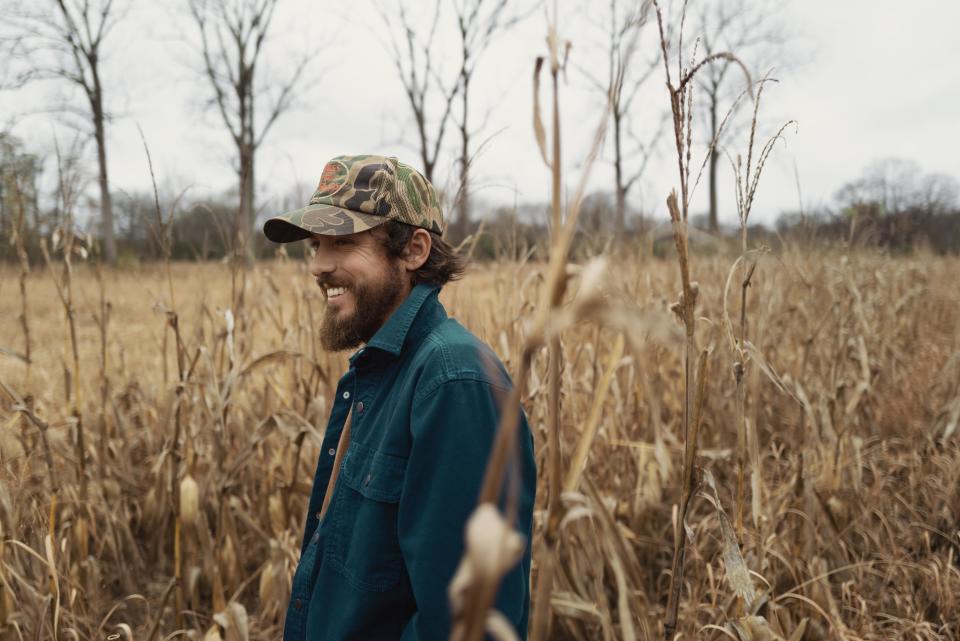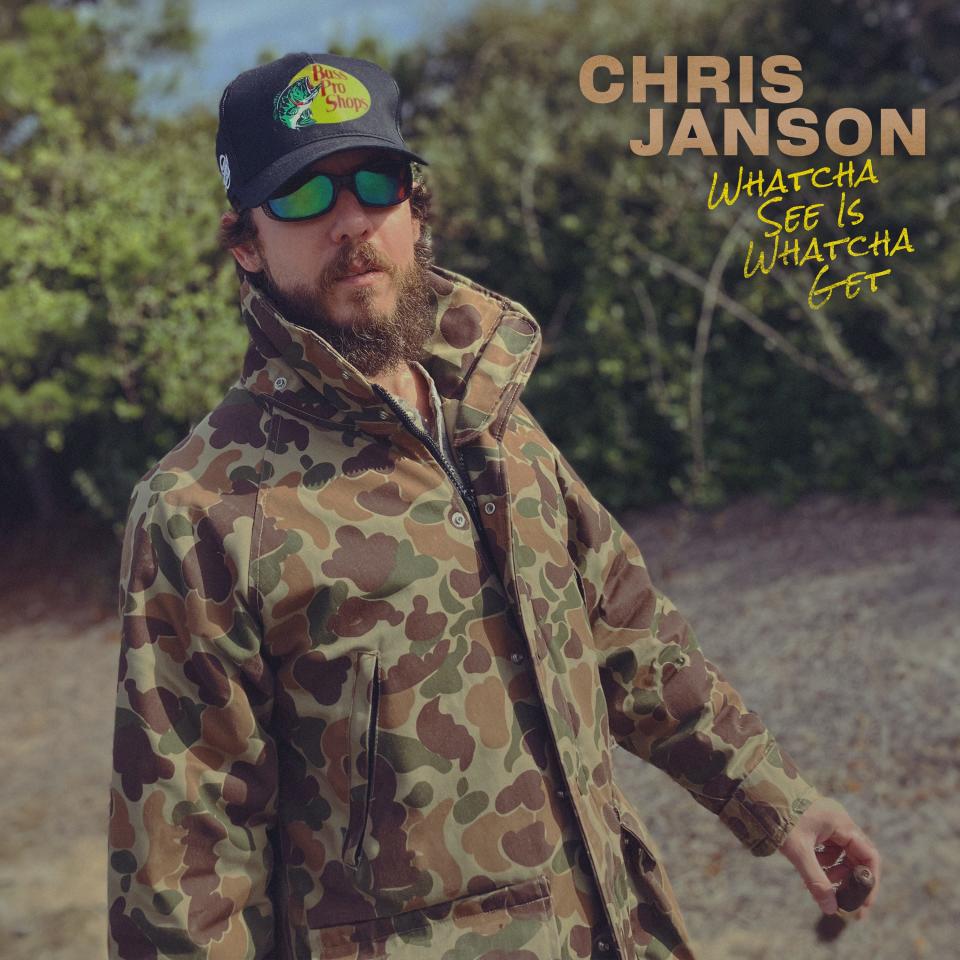Chris Janson finds country music acclaim by doubling down on authenticity
Chris Janson is the only member of the Grand Ole Opry likely to wave a Bass Pro Shops trucker hat to a sold-out crowd after a standing ovation on Opryland Drive.
He's also two years into owning his own label — Big Machine-distributed Harpeth 60 Records — and figuring out how to follow up on "All I Need Is You," his third No. 1 single on country radio in under five years.
His latest, soulfully swinging, pop-styled country single, "Whatcha See Is Whatcha Get," is one of his favorite songs he's ever cut.
"Everything in my career and life feels (great) right now," he tells The Tennessean, comparing the vibes of his life at present to when his single "Buy Me a Boat" was a quadruple platinum-selling hit in 2015.
If you consistently achieve success in Music City long enough, and because its mainstream country industry works like a machine driven by acclaim, opportunities to work with other similarly successful artists — like "Whatcha See Is Whatcha Get" singer-songwriter collaborators Tyler Hubbard and RaeLynn — become possible.

Add the appearance of 10-time Academy of Country Music award-winning session guitarist Tom Bukovac on the track and the song features multi-platinum-selling icons and world-class instrumentation. However, experiencing his second moment with significant career acclaim from a more advanced perspective finds Janson "not intimidated at all."
"Listen to the song — it's honest," he says. "I'm head to toe in camo, and what you see is what you get. It's not just about me, but it's a proud anthem for my fans and so many of us who love country music right now."
Country music is as much a musical genre as it is a lifestyle-driven culture.
Janson is keenly aware of this and compares his love of the outdoors to how much fellow Grand Ole Opry members Vince Gill and Marty Stuart love guitar playing and singing.
Being a rare artist able to bridge country's pop leanings with its traditions is a badge that excites platinum-seller Janson.
What he describes as "writing my own songs and doing my own thing" includes everything from singing cover songs in bars to Williams family collaborations and appearances on Bobby Bones radio broadcasts, which have played a role in his rise.
For Janson, growing "in comfort in (his) own skin" finds him in a rare position three different labels into his career and one single after an album where he paired with acts such as Brantley Gilbert, Dolly Parton, Darius Rucker and former Guns 'N Roses guitarist Slash.
"Creatively, nothing is hindering me in any way, shape or form," Janson continues.
Country, cowboy and Western roots

Speak to Janson about the forthcoming sixth anniversary of his Grand Ole Opry membership and his excitement grows. That membership has a deeper meaning concerning how comfortable he is in his career.
"When I was invited to become an Opry member (in 2017), I was completely OK with being a regular performer on the show but never becoming a member of the Opry itself," he begins.
The Missouri native arrived in Nashville in 2005 and spent his first year in town going door-to-door to Lower Broadway honky-tonks before finally being allowed to play at Tootsie's Orchid Lounge.
"It's humbling to be a member of that club," he says. "I'll always show up for the Opry because they showed up for me before I was a (hitmaker in Nashville). The Opry's heritage and legacy are a big deal."
More music: The Beach Boys' Brian Wilson produced a long lost country album, over 50 years later, it's being released
Dive deep with Janson into why country music is at the core of American culture's overall direction. The native of Perryville, Missouri, has the most intricately defined opinion of the entire conversation.
"Growing up in a rural Midwestern town of under 10,000 people made the romantic (notions) people attach to cowboy and Western culture not the same feelings people have about, say, Ernest Hemingway's adventurous lifestyle novels. Instead, I wanted to be into punk and rock. However, those cowboy and Western roots? They're eventually unavoidable. For most Americans, those values of family, God, and our local communities are not just what country music is all about — they're alluring to all of us.
"I finally sound like myself, entirely," he adds, "and because of that, I've finally made my mark in country music in a big way. Standing out by being yourself, uniquely, always works best."
This article originally appeared on Nashville Tennessean: Chris Janson bridges country, pop with 'Whatcha See Is Whatcha Get'
